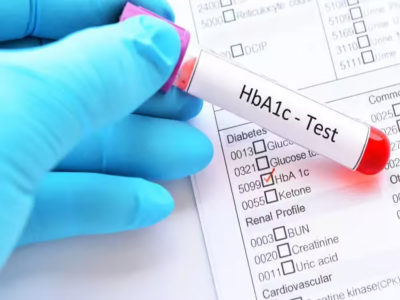World Hypertension Day serves as a crucial reminder of the multiple factors that contribute to high blood pressure—a silent yet significant threat to global health. Among these, smoking stands out as a major modifiable risk, with consequences extending far beyond lung damage to include profound and lasting harm to cardiovascular health.
Despite widespread awareness of smoking’s dangers, its direct link to elevated blood pressure and hypertension is often overlooked or underestimated.
How smoking drives up blood pressure
Nicotine causes a rapid increase in heart rate and blood pressure by stimulating the sympathetic nervous system. This forces blood vessels to constrict and makes the heart work harder. While the spike in blood pressure may be short-lived, continuous nicotine exposure leads to long-term arterial damage, reducing elasticity and promoting sustained hypertension.
Dr Kuldeep Kumar Grover, Associate Director and Head of Pulmonology and Critical Care at CK Birla Hospital, Gurugram, said that smoking both directly and indirectly causes high blood pressure and is widely recognised as a leading modifiable risk factor for cardiovascular disease. He explained that nicotine’s repeated stimulation of the nervous system results in chronic vascular damage over time.
Dr Grover added that quitting smoking brings rapid benefits. “Within 20 minutes of quitting, heart rate and blood pressure begin to drop,” he noted. Over time, the risk of heart disease and stroke also falls, especially when combined with healthy lifestyle changes such as regular exercise, a balanced diet, and stress management.
Also read: World Asthma Day: India’s asthma crisis deepens despite treatability
Passive smoking and long-term damage
In addition to harming smokers themselves, tobacco smoke also affects non-smokers, especially children living with smokers. Second-hand smoke can elevate their blood pressure and increase the risk of long-term cardiovascular complications.

Dr Rajiv Agarwal, Principal Director and Unit Head at Max Smart Super Speciality Hospital, Saket, emphasised that smoking causes both immediate and long-term harm to heart health. He explained that nicotine narrows blood vessels, raises blood pressure, and increases heart rate—all of which force the heart to work harder and place strain on blood vessel walls. This persistent stress, he said, can lead to chronic hypertension.
He warned that passive smoking is equally dangerous. “Even second-hand smoke puts others—especially children and non-smoking family members—at risk of high blood pressure and other heart-related problems,” he said.
Other underestimated risk factors
According to Dr Agarwal, several lesser-known contributors to hypertension also deserve attention. He pointed to air pollution, untreated sleep apnoea, chronic stress, and sleep deprivation as additional risk factors that can elevate blood pressure.
Also read: After life: Organs of 21-year-old brain-dead Delhi woman saves 5 lives
He advised that beyond medication, prevention must focus on lifestyle changes and complete tobacco cessation. Regular health check-ups, he added, play a critical role in early detection and management. “In short, quitting smoking is one of the most effective steps you can take to protect your heart and lower your risk of hypertension,” Dr Agarwal said.





